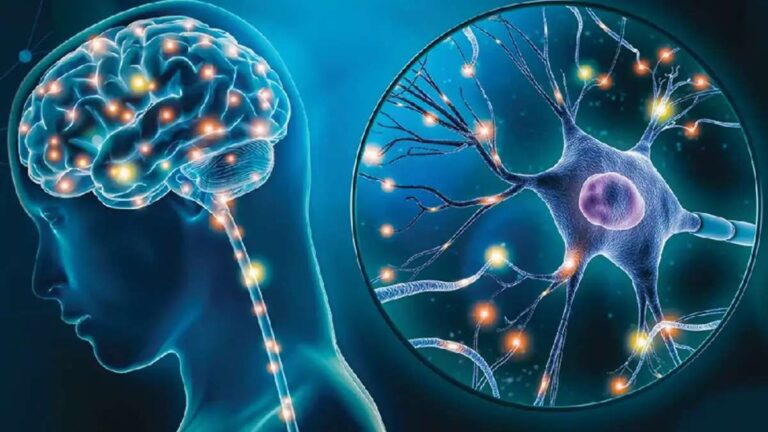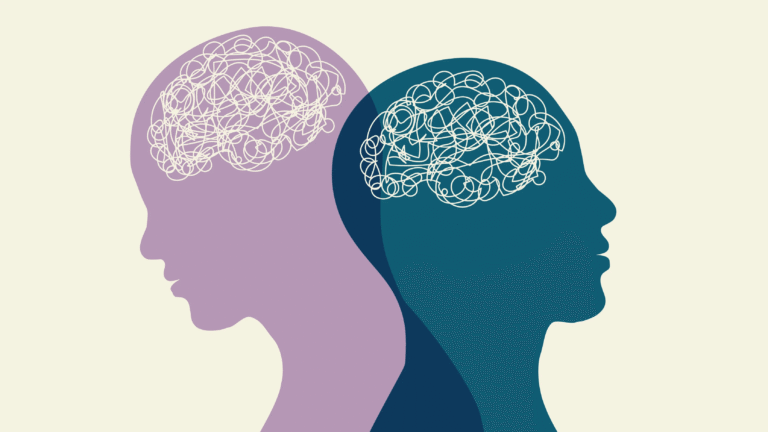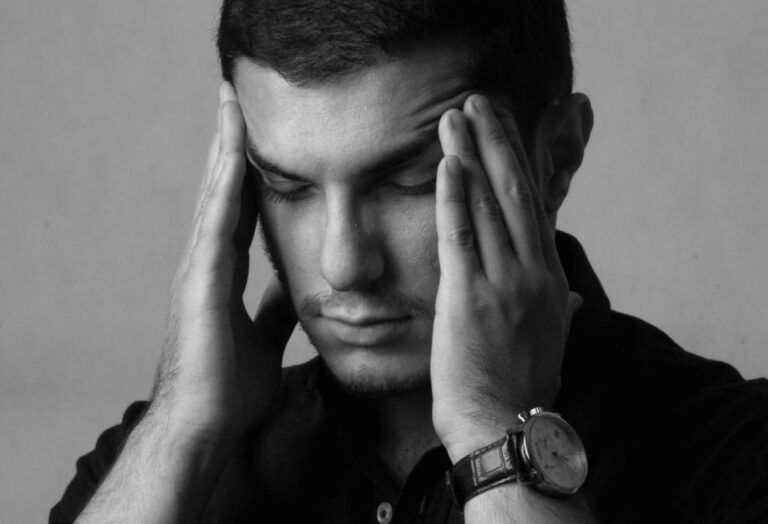For many people living with trauma or post-traumatic stress disorder (PTSD), the temptation to use alcohol as a coping mechanism is strong, particularly so if past issues with drinking have occurred.
After all, alcohol is readily available, socially acceptable, and, at first glance, may seem to offer momentary relief from painful memories, anxiety, and sleeplessness.
But while alcohol might appear to dull emotional pain in the short term, it often does far more harm than good, especially when it comes to trauma recovery.
In this article for Mind Help, we’ll explore how drinking alcohol affects those struggling with trauma and PTSD, why alcohol use may worsen symptoms over time, and how using health coverage for treatment support can provide a path to sustainable healing.
Whether you’re working your way past these challenges yourself or supporting a loved one, understanding the connection between alcohol and PTSD is an important step toward recovery, so please read below for a better understanding of alcohol and its effects on trauma.
Alcohol and PTSD: A Complex, Often Cyclical Relationship
The relationship between trauma and alcohol use is well-documented. People living with PTSD are significantly more likely to develop substance use disorders, particularly involving alcohol.
This isn’t surprising when you consider that PTSD often brings intense symptoms, such as hyperarousal, intrusive thoughts, depression, and emotional numbness that we naturally seek to escape.
We understand that it can be all too easy to view alcohol as a shortcut to relief. It slows down the central nervous system, which might temporarily reduce anxiety or help someone fall asleep. But these effects are short-lived.
Over time, drinking tends to intensify PTSD symptoms, disrupt recovery efforts, and create a dangerous cycle of avoidance and dependence.
This cyclical pattern is one of the reasons early intervention and access to appropriate care, often supported through using health coverage for treatment support, is so critical.
How Alcohol Worsens Trauma-Related Symptoms
Alcohol interferes with nearly every aspect of the healing process for trauma and PTSD.
While it may initially mask discomfort, it undermines both mental and physical health in ways that can make symptoms harder to manage in the long run.
Disrupts Sleep and Emotional Regulation
Sleep disturbance is already a common symptom of PTSD. Nightmares, flashbacks, and hypervigilance can make restful sleep elusive.
While alcohol might help a person fall asleep more quickly, it disrupts REM sleep, the phase of sleep crucial for emotional processing and memory integration. Over time, poor sleep only worsens trauma symptoms and reduces resilience.
Increases Depression and Anxiety
Alcohol is a depressant. In people with PTSD, who may already struggle with depressive symptoms or anxiety, drinking can significantly amplify these emotional states.
It can dull emotional responses at first, but often leads to increased sadness, irritability, and panic once the effects wear off.
Impairs Cognitive and Physical Recovery
Cognitive symptoms like difficulty concentrating, memory problems, and emotional numbing are common in PTSD. Alcohol impairs executive function, decision-making, and memory, which can compound these symptoms and delay recovery.
In addition, alcohol can lower inhibitions, leading to risky behaviors or impulsive actions that may retraumatize the individual.
The Risk of Co-Occurring Disorders
When alcohol use becomes frequent or problematic in the context of PTSD, it can lead to what clinicians refer to as a co-occurring disorder or dual diagnosis. This means an individual is simultaneously dealing with both a substance use disorder and a mental health condition.
Co-occurring disorders often require integrated treatment, which addresses both issues simultaneously. This can include trauma-focused therapy, medical support, psychiatric care, and relapse prevention planning.
The good news is that many of these services can be made accessible through using health coverage for treatment support, whether through private insurance, Medicaid, or other public programs.
Why Do People with PTSD Turn to Alcohol for Relief?
Understanding the “why” behind alcohol use in PTSD can help reduce shame and open the door to more compassionate conversations about treatment. People living with trauma often turn to alcohol as a form of self-medication.
They may not have access to proper care, or they may not realize they are struggling with PTSD at all.
Common reasons people with trauma use alcohol include:
- To numb overwhelming emotions
- To escape distressing thoughts or memories
- To fall asleep or avoid nightmares
- To feel more in control in social situations
- To reduce physical symptoms like tension or panic
While these motivations are understandable, they underscore the importance of trauma-informed care and early intervention, both of which are often more accessible than people realize when they start using health coverage for treatment support.
Using Health Coverage for Treatment Support: An Underutilized Resource
Accessing behavioral health treatment can feel overwhelming, but health insurance, whether private or public, can play a pivotal role in making effective care available and affordable.
If you’re living with PTSD and struggling with alcohol use, your insurance may cover a range of treatment services, including:
- Detox and medical stabilization
- Outpatient therapy (individual and group)
- Trauma-informed inpatient or residential care
- Medication-assisted treatment (MAT)
- Psychiatric evaluation and medication management
- Family and couples therapy
- Ongoing aftercare and relapse prevention
Unfortunately, many people don’t realize these options exist or aren’t sure how to navigate the system. Treatment centers and providers can help verify benefits, but you can also call your insurer directly to ask what behavioral health services are covered.
When exploring treatment options, consider facilities or therapists that specialize in trauma and co-occurring disorders. Integrated care is more effective and offers a better chance of long-term recovery.
What Does a Trauma-Informed Recovery Look Like?
Healing from trauma is not a linear process, and it doesn’t look the same for everyone. But effective trauma treatment usually includes some combination of talk therapy, emotional regulation skills, peer support, and, when needed, medication.
For those who are also struggling with alcohol use, recovery often begins with safe detox and stabilization, followed by therapy that helps them address both the trauma and the substance use.
Therapies that have shown effectiveness in treating PTSD and co-occurring alcohol use include:
- Eye Movement Desensitization and Reprocessing (EMDR)
- Cognitive Behavioral Therapy (CBT)
- Dialectical Behavior Therapy (DBT)
- Prolonged Exposure Therapy
- Acceptance and Commitment Therapy (ACT)
Many of these therapies are widely available and can be covered when using health coverage for treatment support, making them more accessible to individuals who might otherwise avoid seeking help due to cost concerns.
Barriers to Finding Care for Alcohol Abuse and PTSD
Even with insurance, some people face barriers to treatment like provider shortages, long waitlists, or stigma around mental health and substance use.
If you’ve tried to get help in the past and faced obstacles, it’s important to know that resources continue to grow, and new care models (such as teletherapy and virtual intensive outpatient programs) are making treatment more accessible than ever.
Don’t let confusion around insurance or fear of judgment keep you from seeking support. Behavioural health providers are increasingly trained to offer trauma-informed care, and many specialize in helping people navigate insurance benefits and coverage.
Supporting a Loved One with PTSD and Alcohol Use
If someone you care about is struggling, it can be painful and confusing to watch. You may feel helpless or unsure how to intervene. Encouragement and education are key. Learning about the connection between alcohol and trauma can help you approach your loved one with empathy and clarity, rather than frustration or blame.
Helping them explore treatment options and showing how using health coverage for treatment support might reduce financial strain can make the idea of recovery feel more achievable. Offer to help research providers, attend appointments, or even just listen without judgment.
Get Hope for Both Alcohol and Trauma Through Supportive Care
PTSD and trauma can be isolating. Alcohol can temporarily ease the discomfort, but often deepens the wounds over time. The path to recovery may be challenging, but it’s also filled with opportunities for growth, connection, and healing.
If you or someone you love is struggling with the effects of trauma and alcohol use, you are not alone. Support is available and often more accessible than it seems, especially when you explore the option of using health coverage for treatment support.
Whether it’s taking the first step toward therapy or finally addressing long-standing patterns of alcohol use, recovery is not only possible, it is well within reach.











